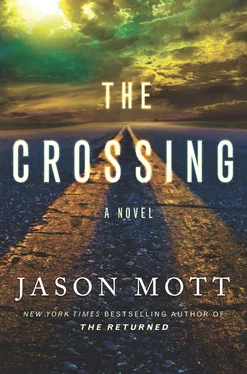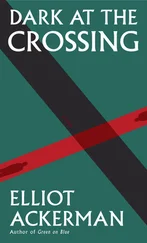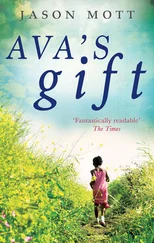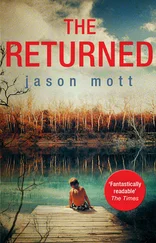“Who gave you that nothing?”
“No one,” Tommy replied. Then: “Everyone.”
“That’s pretty existential.”
“It’s pretty what?”
“Nothing.”
Tommy sat on the floor and looked down at his hands. His knuckles were bruised and the fingers of his left hand trembled. He made a fist so that he didn’t have to see them shake.
“So, are you going to tell me what it is?” I asked.
“Nothing,” Tommy said. “I guess I’m just experimental or whatever.”
“Existential.”
“That’s what I said.” His brow was furrowed. His clenched fist wound itself even tighter. He heard a soft, muffled pop and looked up to see that the sound was that of me closing my book and focusing my attention on him, which I didn’t do often enough. I realize that now.
“Whatever it is,” I said, “I’m going to figure it out eventually.”
“I know,” Tommy said.
“Not because I’m smarter than you.”
“No?”
“No,” I replied. “I’m going to figure it out because you’re my brother. And because I love you.”
“Thanks, Ginny,” Tommy said. “You’re a good sister sometimes.”
“Don’t go ruining my image,” I said, grinning in spite of myself. “You want me to read you one of Dad’s letters?” I asked.
“No,” Tommy replied. He looked down at his hand. Finally it had stopped shaking. “Why do you read them?” Tommy asked.
“What do you mean?”
“What’s the point?”
“Because keeping them matters,” I said.
“Why does it matter?” Tommy replied. I could see the thoughts taking shape in his mind. “I guess I just don’t understand how holding on to the past does anything good for the future,” he said slowly.
He exhaled. He’d passed the candle that was burning inside through the crevices of his mind and body and he’d said what he felt. He’d achieved that miracle. “I’ll see you in the morning,” he said immediately, before I could ask more questions.
He went to his room and pulled out the draft notice from his pocket. It was wrinkled. He looked again at the strong, indomitable font that they used to tell seventeen-year-old boys that it was their turn to pick up a rifle and go off and get killed, and then a voice was in his head, sounding like the president himself, saying, “No way in hell you can do this.”
Tommy stood in his room and it seemed smaller all of a sudden. Or maybe he seemed larger. Maybe he was swelling up, overflowing the inside of himself.
* * *
It was just after midnight when Tommy started out for the river. It was over two hours of hiking before he began to hear the roar of the water and feel the chilly spray rising up and misting through the January air. He had brought his backpack along—complete with camping supplies—on the off chance that he might run into someone and need an excuse.
He was almost upset when he met no one on his way to the river. One of the few times in his life that he’d actually thought ahead and there would be nobody to see it.
Then he found himself standing atop a large rock on the edge of the river, staring down into the water as the moon shone overhead and turned the water to light. The rock moved a little under his weight, like it knew why he had come there and wanted to help. When the rock shifted and settled again Tommy just stood there and waited for the bottom to fall out from beneath him. He straightened his back and stuck his chest out and looked like the statue of a hero who had conquered everything in this life and had gone on to conquer everything in the next.
Tommy knew that he was supposed to be afraid. But he wasn’t. Just tired. Like he’d carried too much for too long.
He inched closer to the edge of the rock. It shifted again beneath him, but still didn’t give up. Tommy waited for Death with the patience of a crocodile. He wasn’t sure when it had happened, but somewhere along the way he had decided to put his life into the hands of Fate. So he waited for The Inevitable Lady to make her decision.
Time passed and the rock never gave way. The wind never came along and pushed him off. The river itself never reached up and plucked him out of the air. The only thing that happened was that time passed and he was still alive and, finally, the more he realized he was still alive, the more afraid he became.
Afraid of the war. Not afraid of dying in it, but of going to it and not being smart enough. Afraid of failing the man next to him. Afraid of messing things up the way he could sometimes and getting somebody killed. Afraid he’d go there and get it all wrong and be sent home and I would be waiting for him and I’d look at him with eyes that looked just like our mother’s and I’d say, “It’s okay, Tommy. You did your best.”
And he would be forced to live with the fact that his best hadn’t been good enough. It never was.
The fear never broke. Not even when he stepped back from the edge and started home. He didn’t cry, even though he thought that was probably what he should have done. That’s what a person was supposed to do at these types of moments. But there were no tears. Not until he got back to me.
He came inside the house just before sunrise and found everyone asleep just as they had been. He took off his backpack and placed it in the closet. He walked into my room and sat on the floor next to my bed and, finally, he began to cry.
He sobbed like a child until the new day broke.
When I woke—from a dream of rain and sadness—I looked down at him and saw him crying and I climbed out of bed and sat beside him and put my arm around him and said, as though ending a long conversation the two of us had been having, “Thank you.”
He clucked a sob-filled laugh.
“I never know how to do anything right,” Tommy said.
To My Children,
Your mother always smiled more than I did and I never understood why. She planned trips we knew we weren’t going to take. She bought old photos at yard sales of people we didn’t know and she told me the fictitious narrative of their lives in her best storyteller’s voice. In the mornings she assigned me the most interesting horoscope she could find, regardless of what sign it fell under. We lived in a small apartment that she turned into a home. She filled it with items rooted in the both of us. The scarf she wore on our first date. A fistful of sand from a night shared on a beach. She always found a way to present these small things like holy relics so that we were never far away from the things we love.
By the end of the first month of knowing we were bringing a child into the world I couldn’t sleep. At night I sat up reading while your mother snored in that catlike way of hers. I reread old books, certain I had missed something important but never exactly sure what. When the morning came, I had slept for maybe two hours. My eyes stung and my body felt as though it belonged to someone else. Then your mother would roll over and kiss me—she was always touching, always trying to prove to me that we were connected—and my body would become my own once again.
At work, I wrote a personal interest column. “Keeping hope alive” is how Clarence, the old man who owned the paper, referred to it. It was my job, he felt, to stem the dismal tide that seemed to be rising. I was supposed to undo everything that was being done in the world.
Clarence—a stout man with wide shoulders, round glasses and an even rounder bald head—told me one day, “It’ll never matter more than it does right now.”
“What’s that?”
“It’s all knocking on the front door. And we’ve got to answer it, for better or worse. But that doesn’t mean we have to give up.”
“You lost me.”
“Like hell I did.”
Whenever possible, “Like hell I did” was how he ended conversations. There was nothing those four words couldn’t do. They made him enigmatic and wise when, only a moment ago, he had been just a fat old bald man with arthritic knuckles and a newspaper that was draining his life’s savings.
Читать дальше












